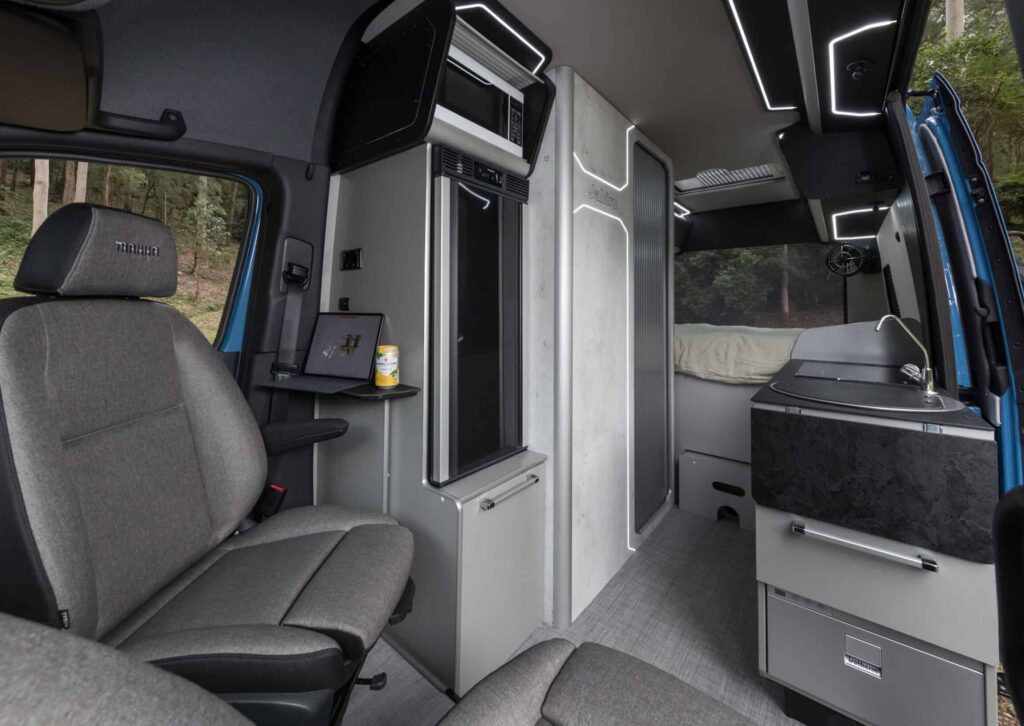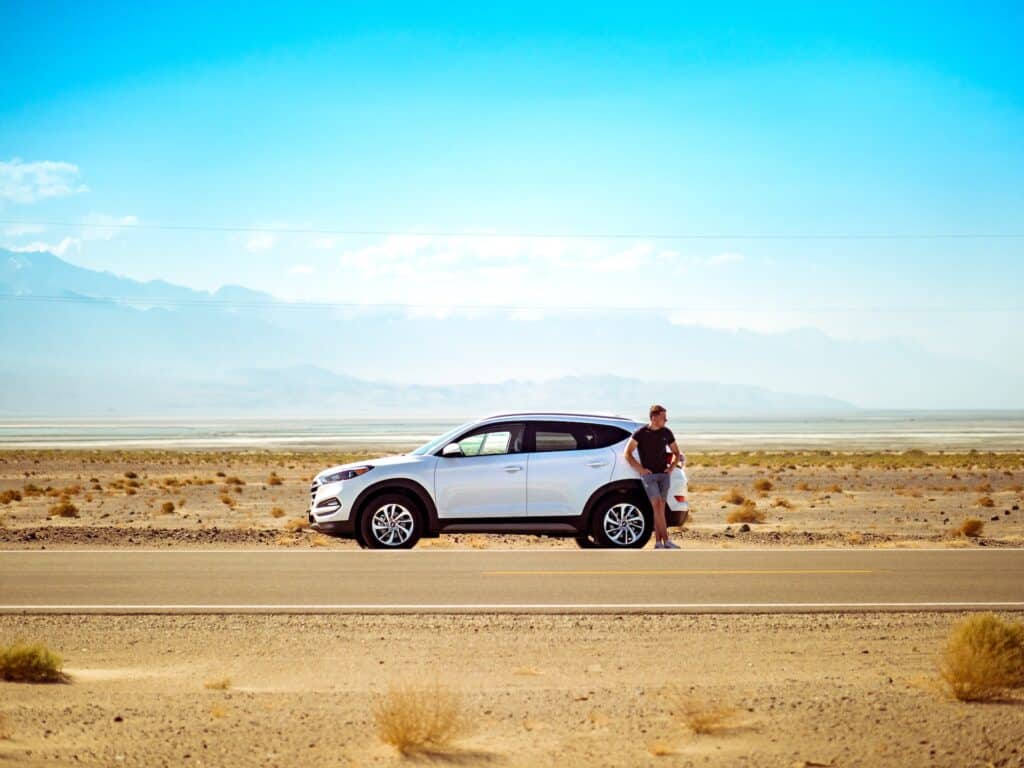There are always risks where there is money involved, and renting a car is no exception. Even though you are only paying for a car temporarily, you should always be aware of the risks before handing over your hard-earned money.
In reality, this is made much harder due to rental car agencies claiming risk-free services that you should avail of without a second thought, but we’re here to tell you about some of the major risks of renting a car.
Some very common risks that come with renting a car are inadequate seating space, hidden car rental insurance fees, renting location fees, mileage restrictions, gas fill-up charges, and previous renter’s damages. You may also face issues with additional driver charges, road traffic rules abroad, and non-refundable deposits to top it all off.
If you were unaware of any of these potential issues, keep reading as we break down each of them! After all, dealing with these issues at the last minute can really flip an entire vacation on its head, leaving you to deal with hefty charges at the end of it.

9 Car Rental Risks You Should Know About
No one wants to get into trouble with car rental agencies, especially when they’re inexperienced in dealing with such agencies. Issues like heavy insurance claims or non-refundable deposits are enough to make people reconsider these services in the future.
That’s why we are here to make sure you do not end up in such an unfortunate situation.

1. Inadequate Seating Space
One of the most common risks of renting a car is renting one that cannot fit your entire travel group along with their luggage. This can be a very big issue as it eats up vacation time until you can find a bigger car to rent or hire an extra one to drive you around.
To avoid this from happening on your traveling trip, the best method is to go check out the car in person. In this era of digitization, many people prefer to book cars online, yet inspection is limited to only pictures of said car.
This especially holds true in the case of last-minute bookings where, after all, any transport is better than no transport.
Regardless, you should always see the car in person to get a good estimate of whether or not everyone will be able to fit inside comfortably along with their luggage.
2. Hidden Rental Insurance Fees
Hidden Rental Insurance fees are something many people complain about but rarely have the ability to change. Such fees are usually stated in the contract, and while they aren’t hidden from the buyer, most individuals tend not to read through the entire contract properly.
Due to this, they are left in awe when the insurance fee is added to their total at the end of the trip.
If you want to prevent this hidden insurance fee from blowing up your car rental bill, make sure to go through the entire contract, especially the part about the insurance. We agree that insurance is important, but car rental agencies usually have very high-priced staple insurance they give out to customers.
If you don’t think you’ll need it, you can always switch to a lower-priced option more suited to your needs.
While insurance fees can be incredibly high, we recommend getting some kind of insurance. In certain situations, even the premium insurance provided by these agencies can be useful. It all depends on where you’re traveling and the road traffic conditions over there.

3. Renting Locations Fees
Most of you might have heard about the foregoing two risks involved in renting a car, but this one is unknown to a vast majority of people. Renting location fees refer to charges pertaining to where you will be picking the car up from.
If you pick it up from the agency itself, the fees are usually very minor or even null. However, if you need the car to come to pick you up from, for instance, the airport, then this fee is much higher.
If you’re wondering how this works and why companies charge more for bringing the car to certain locations, it is because those are hotspots where many travelers need pickups. As a traveler yourself, you will prefer to have your car waiting at the railway station or airport when you arrive but remember, you’ll need to pay extra to make that happen.
On the flip side, you could travel further from the airport to the rental agency to pick up your car, perhaps via taxi or Uber. This is a bit of a hassle but can save you from that expensive renting location fee.
However, whether or not you want to pay this extra bit is up to you since loading up all your luggage in a taxi to reach the rental company isn’t always easy.
4. Mileage Restrictions
Mileage restrictions are stipulations that depend from company to company. Larger corporations may have much more lax restrictions as compared to small-scale rental companies. Regardless, the idea is that there is a certain limit on how many miles you can drive – anything above that, and you’ll find yourself paying extra for every mile.
Now this is something you can find in your contract or even ask the rental agent about personally. It is important that you keep track of your travels and space out your car usage, as going over the mileage restrictions consistently can also show bad customership.
Usually, bad customership lowers your chances of getting a nice car or special privileges the next time you require that agency’s services.
5. Gas Fill-Up Charges
While we wouldn’t count gas fill-up charges as hidden charges, it is definitely one many users won’t be aware of unless told about it. Gas fill-up charges refer to how the car rental company charges you for the gas you used while renting their car.
Rental companies charge much more for the same amount of gas that you could easily get from a local gas station. Since you get the car with a full tank of gas, they simply subtract it from the amount left when the car is returned to them.
They then apply their own pricing to that amount of gas, ultimately adding it to your final bill.
This charge can easily be nullified by simply filling up the car before returning it. On your way back to the car rental agency, stop at a local gas station and fill it up to full.
If there aren’t any nearby gas stations, you might still have a small charge for fuel used to get from the gas station to the agency, but it will be insignificant compared to what it could’ve been.

6. Previous Renter Damages
Every car renter needs to know that they are not liable for any damages done to the car by the previous renter. Sounds simple enough? That’s the difficult part. As we mentioned before, customers should always see the car in person before renting it out.
Many car rental companies might try to pawn off older car damages to you and add it to your bill.
This can be avoided by visiting the dealership and making a note of all the damages already done to the car. You can even make a video for visual proof if they try to claim damages at the end. This will help you differentiate any damages during your trip from damages already there before you rented the car.
7. Additional Drivers Charges
There are some risks when it comes to renting a car itself, but what about the risks involving everything that goes with it? Additional driver charges are one of those risks, as you’ll be paying small increments depending on how many people are going to be driving the car. In the standard contract, only the person that rented the car can drive it.
Thus, if you’re going to have more than one person driving the car, you need to inform the agency.
This can be a mandatory expense when going on long road trips where one person cannot sustain the entirety of the driving load. You’ll most likely need to change drivers while the main driver rests, so this charge cannot be avoided in some cases.
However, if you’re traveling in a city and staying at a hotel, it is usually better to have only one person drive the car; otherwise, you’ll open yourself to various liabilities.
For those thinking about whether this is necessary or optional, it is necessary to inform the agency of all users who will be driving the car. In case you get into an accident where the car is damaged and was being driven by an unauthorized person, you will lose the insurance and have to pay out of pocket.
So it’s always better to pay a little extra upfront rather than having to pay for the damages.

8. Road Traffic Rules Abroad
Many people need help understanding the rules and regulations surrounding driving in countries abroad. While this may seem insignificant other than a few traffic stops, it can be seriously damaging to your rental car contract and is a risk you should consider.
How exactly? Well, since the car isn’t yours, if it is caught in any violation of the law, the car rental agency might take action against you, so knowing the laws beforehand is always a good idea.
Hence, before you pick up the car, make sure to go through all the road traffic rules of whichever place you are visiting. Regulations such as which side of the road to drive on, who gets to turn first at roundabouts, speeding limits, etc., are important to keep in mind.

9. Non-Refundable Deposits
Non-Refundable Deposits are an issue people come across while purchasing any business’s services. This is because businesses need to make sure that once someone has booked their services, they won’t be able to back out or cancel without paying a small fee.
While some businesses have cancellation penalties, many car rental companies require non-refundable deposits.
If you are booking a rental car requiring a non-refundable deposit, you should ensure all your affairs are in order before doing so. This is because even if your travel plans are shifted from the planned dates, you lose the deposit you put down for the car.
This is so important because once you pay that non-refundable deposit, you may not be able to change the car regardless of any known issues.
For exactly this purpose, we recommend everyone always check out the car in person, note down any pre-existing faults it has, and make sure their travel plans are finalized before putting down a deposit for the car.

FAQs
Is Car Insurance Mandatory?
No. When renting out a car, you are not mandated to purchase insurance, regardless of whether the agency or a private insurance company provides it. However, it is best to have some level of insurance in case of any damage to the car.
Do Features Like Child Car Seats And GPS Cost Extra?
This depends from agency to agency for GPS. Some have all-inclusive packages where you receive all the features already available inside the car, while others have additional GPS charges. Aside from that, features like child car seats will cost extra.
Are There One-Way Rentals?
Yes. Many agencies have now started issuing one-way rental opportunities at affordable rates. This means you can pick up the car at one location and drop it off at another. However, before relying on this stipulation, you should double-check with your rental agent before picking up the car.
Final Thoughts
Renting a car comes with several risks that travelers should be aware of to avoid any unpleasant surprises. These risks include inadequate seating space, hidden rental insurance fees, renting location fees, mileage restrictions, gas fill-up charges, and previous renter’s damages.
Additional driver charges and understanding road traffic rules abroad are also crucial considerations.
Moreover, non-refundable deposits can be a major concern if travel plans change. To mitigate these risks, always inspect the car in person, read the rental contract thoroughly, and consider purchasing insurance.
Being well-informed and prepared will ensure a smoother and more enjoyable car rental experience for your travels.
Resource Links To Products We Use And Recommend
More Pages On Other Areas
There’s been a steady rise in interest in cruise ships worldwide. With everyone wanting to see what all the chatter’s about, many are first-timers. So, if you’re one of those individuals and...
Your twenties are some of the best years of your life to travel to your heart’s content. However, despite having the time, money, and energy to expend, you'll need proper transport no matter where...


